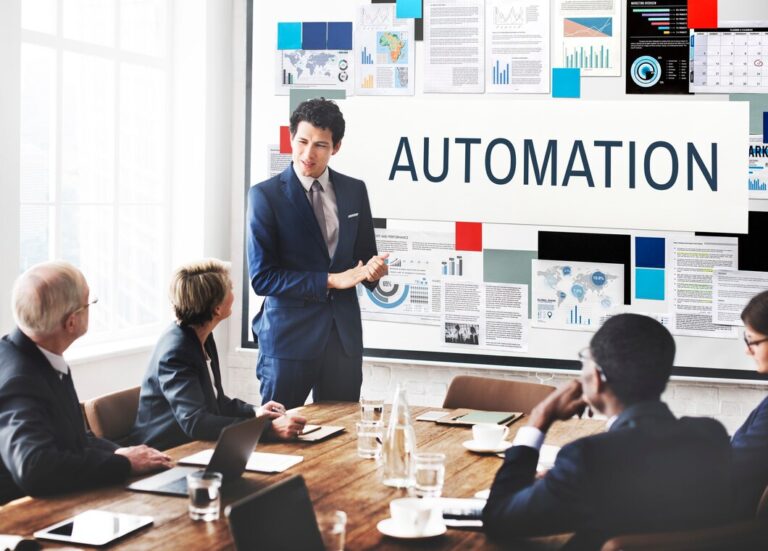Why Companies Thrive with Strong Human Capital Management
Key Takeaways
- Vital Human Capital Management (HCM) is essential for company growth and sustainability.
- Effective HCM strategies improve employee engagement and productivity.
- Integrating technology within HCM can streamline operations and enhance decision-making.
- Training and development are critical components of a robust HCM framework.
Understanding Human Capital Management
Human Capital Management (HCM) is the strategic approach to managing an organization’s workforce to ensure maximum productivity and efficiency. This comprehensive framework covers a variety of HR functions, including recruitment, onboarding, talent development, and performance management. The ultimate goal is to maximize workforce potential while aligning employee goals with the organization’s strategic objectives. According to the definition of human capital management (HCM), utilizing these processes allows companies to adopt a people-centric approach crucial in today’s competitive landscape. By managing talent effectively, organizations can respond swiftly to market changes and remain resilient amidst challenges.
Moreover, HCM emphasizes employee experiences and organizational culture, both integral to building a motivated and engaged workforce. While traditional HR practices focus predominantly on compliance and risk management, modern HCM aims to create a positive employee journey from entry to exit. By optimizing these experiences, firms can foster a sense of belonging and loyalty among their staff, which is invaluable for long-term success.
The Impact of HCM on Employee Engagement
Employee engagement is a crucial metric of organizational health, and effective HCM practices significantly enhance it. Engaged employees are satisfied, motivated, productive, and aligned with the company’s mission and goals. When employees feel that their contributions are recognized and their career development is supported, they naturally commit more to their roles. This investment translates into tangible business outcomes such as increased innovation, higher customer satisfaction, and improved financial performance.
Studies have consistently shown a direct correlation between engagement levels and productivity. Employees actively engaged in their jobs will likely perform beyond their basic job requirements, showcasing discretionary effort that leads to exceptional results. Companies harnessing robust HCM strategies can capitalize on this intrinsic motivation, paving the way for a thriving organizational culture.
Utilizing Technology for Efficient HCM
Technology has become a linchpin of effective Human Capital Management in today’s digitally driven world. Various digital tools and platforms now allow businesses to manage large-scale data efficiently. Technology enables HR professionals to gain more precise insights into workforce dynamics and make data-driven decisions, from applicant tracking systems to comprehensive employee analytics programs. Integrating these technologies not only automates mundane administrative tasks but also facilitates real-time feedback, which is crucial for ongoing improvement.
A Forbes report outlines how innovative organizations leverage technology to transform their HCM practices. The report emphasizes the shift towards AI-driven analytics, which help companies personalize the employee experience and boost engagement across all levels. By adopting these technological advancements, companies can streamline operations while focusing on strategic priorities that drive business growth.
Training and Development in HCM Practices
Training and development are fundamental components of an effective HCM strategy. In an increasingly complex global market, companies that invest in the growth and development of their employees are more likely to maintain a competitive advantage. This involves offering traditional skill-set training and promoting leadership development, encouraging innovative thinking, and nurturing soft skills.
Organizations benefit exponentially from a workforce that is continually learning and adapting. Employees, in turn, value opportunities for personal and professional advancement, which increases job satisfaction and loyalty. Creating a culture of continuous learning supports employees in realizing their full potential, boosting confidence, and cultivating a pipeline of talent prepared to rise to new challenges.
The Role of Leadership in HCM
The influence of leadership in shaping Human Capital Management cannot be overstated. Influential leaders inspire their teams, bridging the gap between corporate strategy and employees’ day-to-day activities. Their role is pivotal in promoting an organizational culture that values openness, communication, and diversity. Transparent and approachable leaders can foster trust and innovation, empowering employees to bring their best selves to work.
Furthermore, leaders who prioritize employee engagement and invest in HCM practices can help steer the organization toward achieving its long-term objectives. Effective leadership involves making decisions and ensuring that employees are motivated and aligned with the organization’s vision, thereby creating a cohesive and proactive work environment.
Case Studies: Successful HCM Implementation
Many corporations worldwide have illustrated the profound impact that effective Human Capital Management can have. For example, technology giants have implemented comprehensive HCM frameworks emphasizing employee well-being, improving retention rates, and heightening employee morale. These organizations have taken proactive steps to align their human resources initiatives with broader business goals, leading to measurable employee satisfaction and organizational performance success.
By examining these successful case studies, other companies can gain insights into the best industry practices and adapt these strategies to fit their unique corporate environments. The learnings from these examples serve as invaluable resources for businesses aiming to elevate their HCM practices.
Future Trends in Human Capital Management
As we look forward, several emerging trends will likely shape the future of Human Capital Management. One such trend is the increasing emphasis on flexible work arrangements, a paradigm shift accelerated by the global pandemic. Another key trend is the focus on holistic employee well-being, recognizing mental health as a crucial component of workforce productivity.
Additionally, their integration into HCM processes will only deepen as innovative technologies advance. Customizing the employee experience through AI and machine learning will enable organizations to meet individual needs and preferences better, leading to enhanced engagement and performance. Companies that embrace these trends will be better positioned to attract and retain talent in the evolving workplace landscape.






